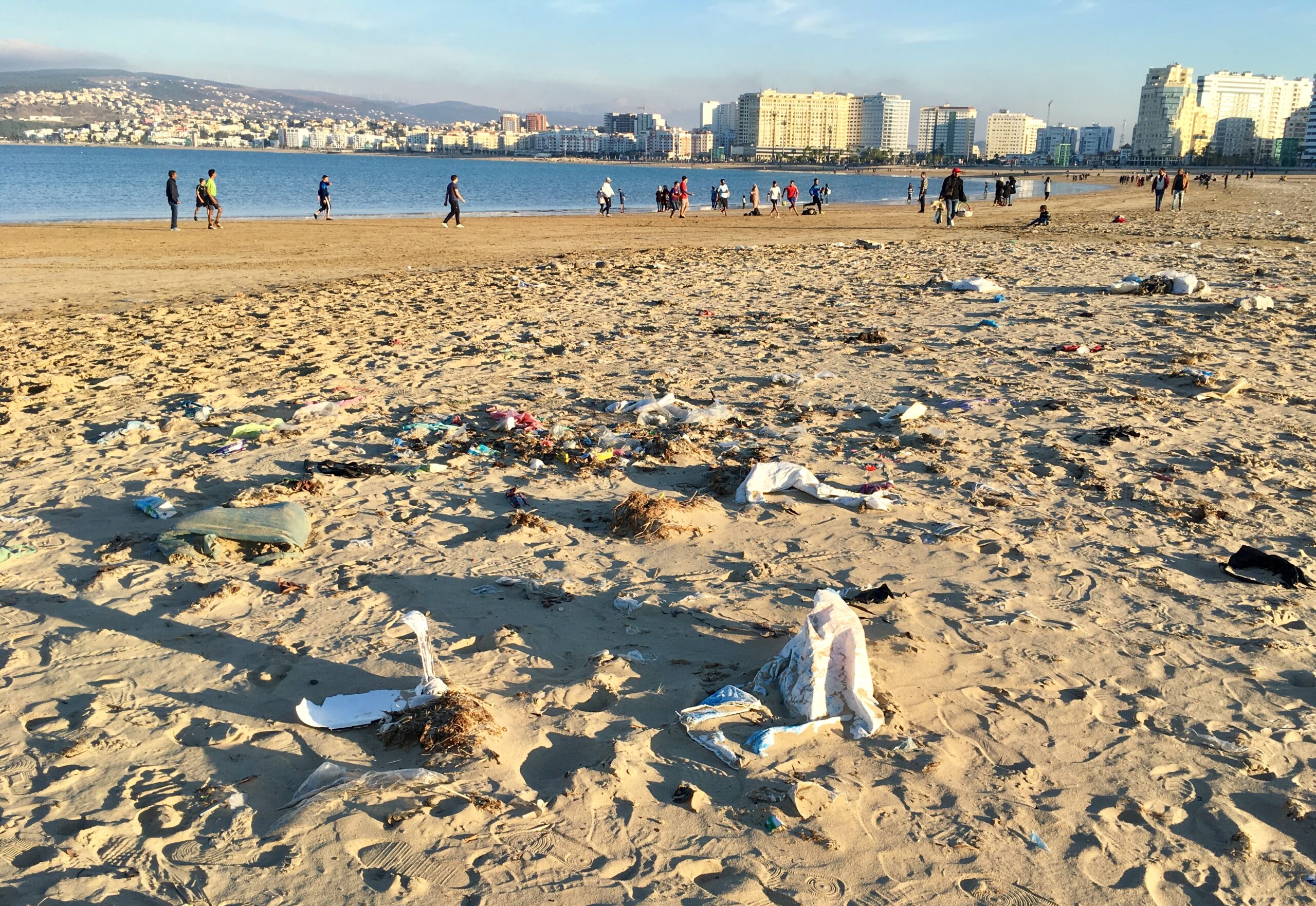Plastic pollution is now a top concern in global environmental governance. At the INC-5.2 negotiations in Geneva, many had hoped for the adoption of a legally binding treaty to end plastic pollution. Yet, the talks ended without consensus, leaving uncertainty about the path forward.
At the policy level, IUCN Members are pushing for stronger global action through Motion 059 at the World Conservation Congress. The proposal calls for cutting plastic production by at least 40% by 2040 and phasing out single-use and short-lived plastics that pose the greatest risks to people and nature. Delegates will vote on the motion at the next Congress in Abu Dhabi in 2025. If adopted, it will become a binding resolution shaping the Union’s work on plastic pollution in the years ahead.
The Mediterranean, a fragile sea under pressure
The Mediterranean Sea is often described as the world’s most beautiful but endangered “blue heart.” A 2019 IUCN report, Mare Plasticum: The Mediterranean, warned that the sea has become the sixth largest accumulation zone for marine litter worldwide. Though it makes up just 1% of global waters, it carries an outsized burden, holding 7% of all the world’s microplastics. From deep-sea sediments to floating debris, this pollution is putting marine life, human health, and entire economies at risk.
Regional governance
Within the Mediterranean, the MEDPOL Programme of UNEP plays a central role. It oversees the Integrated Monitoring and Assessment Programme (IMAP) for pollution, litter, and noise, and helps countries implement the protocols of the Barcelona Convention through monitoring, capacity-building, and enforcement.
Against this backdrop, the IUCN Centre for Mediterranean Cooperation (IUCN Med) is joining forces with partners to confront plastic waste, developing practical responses, helping coastal cities and islands cut leakage, and providing scientific evidence to guide policy and consumer choices.
From islands to river basins
IUCN Med has piloted innovative solutions through the Plastic Waste Free Islands Mediterranean project in Menorca and Cyprus, later publishing a blueprint for zero plastic pollution on islands.
IUCN Med is also a partner in Beyond Plastic Med, alongside the Prince Albert II of Monaco Foundation, Tara Océan and Surfrider Europe. In May 2024, BeMed+ launched its second call for projects to support local island initiatives. Seven new projects were selected and supported to develop micro-initiatives by stakeholders in the field over a period of one to two years. Also, IUCN Med has helped establish a Community of Practice against plastic pollution under the BeMed initiative, linking civil society, governments, and businesses.
These initiatives also benefit from the CapiMed-Islands programme, coordinated by MedWaves and SMILO, which fosters collaboration and capacity-building across Mediterranean islands.
Linking plastic and tourism
Tourism is both a driver and a victim of plastic pollution. Through the Blue Tourism Initiative, IUCN Med co-authored a regional report showing how plastic waste affects fragile ecosystems like Posidonia seagrass meadows and offered recommendations for more sustainable practices: Mapping the Impact of Blue Tourism in the Mediterranean: Vulnerability Assessment of Coastal and Marine Destinations.
IUCN Med is preparing to launch the Mediterranean Urban Pact on Plastics, a city-driven initiative that positions municipalities at the forefront of reducing plastic waste. The Pact will help local governments implement the UNEP/MAP Regional Plan on Marine Litter Management, aligning urban action with regional and global commitments.
Tackling plastic pollution in the Mediterranean requires addressing its root causes, from unsustainable production and consumption patterns to ineffective waste management. IUCN Med remains committed to working with its Members, partners, and local communities to reduce plastic at the source, promote circular economy solutions, and strengthen policies that prevent leakage into nature. By targeting upstream drivers and supporting innovation on the ground, we aim to advance a Mediterranean region where ecosystems, economies, and people are no longer threatened by plastic pollution.
* This article has been prepared to showcase the actions led by IUCN Med and its partners in the Mediterranean, in the context of the IUCN World Conservation Congress, highlighting how the region’s experience can contribute to global conservation debates and solutions.
More information:
STORY MAP: The plastic pollution crisis: tackling plastic waste in the Mediterranean sea
